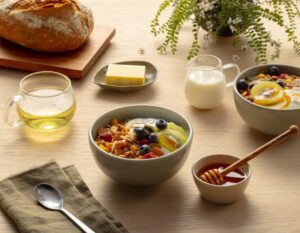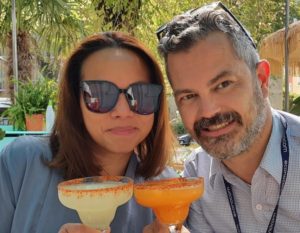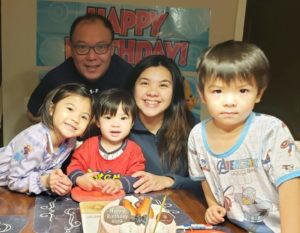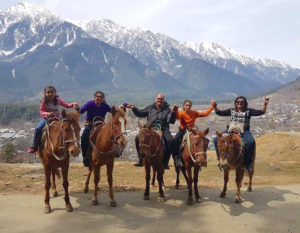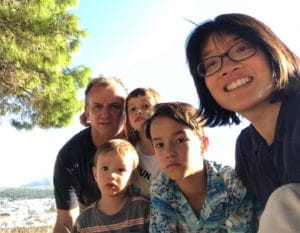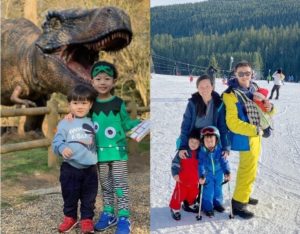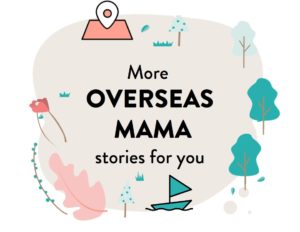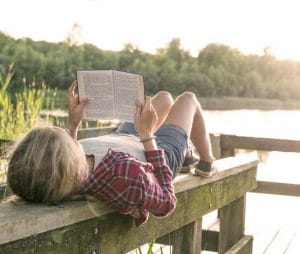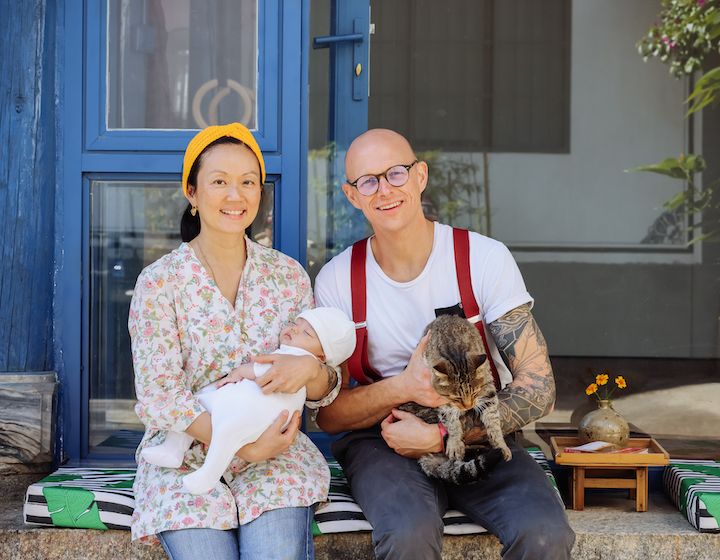
Limay Loo on raising her baby abroad, why she hasn’t been able to return home in 3 years and the beauty of swapping manic city life with neighbourly kampung life in a village by the mountains in China
Singaporean Limay Loo has been abroad in Australia and China for a total of 17 years – half of her life! Limay now lives in Dali, in Yunnan province, within China, with her French hubby and baby Luka. Here she talks about swapping frenzied creative agency city life with running her own art and design studio in a countryside village at the foot of the mountains (cue frequent power and water cuts), how she opted out of giving birth in Dali as they don’t allow husbands in the delivery room, how she’s bringing up her baby to be trilingual, and how she hasn’t been able to return to Singapore in over three years.
Click here to read about other Overseas Singaporean mamas!
Can you tell us a little about yourself?
I’m a middle child, with an older sister and a younger brother, born to second-generation Chinese Singaporean parents. I had a very active childhood and was involved in competitive swimming and classical ballet for many years. I was never a great student academically, but I loved the arts. I went to Catholic schools from primary to junior college. I have many good friends from my schooling years, and we are still very close today. I went to university in Melbourne, Australia. It was the first time I lived on my own. I learnt how to cook during this time. I loved going to supermarkets even back then. It’s still one of my favourite things to do now anywhere.
After graduation, I returned to Singapore and worked for three to four years in public relations. I did not love it and never really got in the groove. I decided to visit my parents who were working and living in Shanghai at that time. I was so impressed by this massive city that when I came back to Singapore, I found, applied for and won a scholarship to study Fashion Design at Raffles Lasalle in Shanghai. I resigned and moved to Shanghai in a few weeks, and ended up staying in Shanghai for nine years. I fell in love with the city and met my husband through work there.
What brought you to Yinqiao Town, Dali?
I had the most magical years in Shanghai as a young professional, working hard and probably playing even harder. I was constantly meeting people from all over the world, eating food from every cuisine you could think of, and just living in the moment, going to openings and events all the time, checking out new restaurants and galleries. I wasn’t stressed thinking about money, the past or the future, I just did whatever I felt like doing, whenever I felt like doing it. It was total freedom and very liberating.
But nine years is a long time, and as full of energy as you are when you’re young, the grind of the city also starts to get to you. I met my husband, Arthur, in my last few years in Shanghai, and together, we felt ready for a change of scenery. We decided to get married and swap our lifestyles for something more chilled and healthier. Arthur had been a fan of Yunnan province and Dali, a city in western Yunnan for a long time. As he’s an avid trekker and a fan of the mountains, he visited Dali often. As we were both happy to stay in China, Dali seemed like a good option for our new life. There’s great air, clean water and the cost of living is low. So that’s where we moved to after Shanghai.
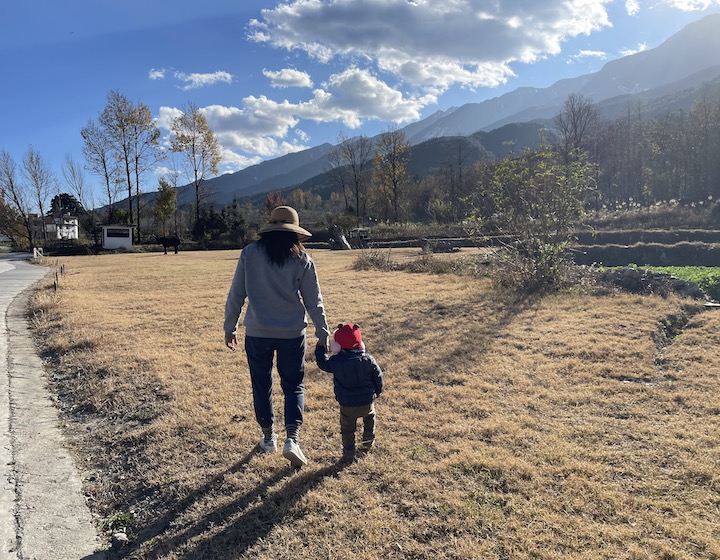
Favourite aspect about living in Yinqiao Town?
We live in a village by the foot of the mountain. My favourite part about living here would be the space that we have. We have an old wooden house with two guestrooms, my creative studio, a tea/ movie room, a yoga studio, and a kids’ playroom. We also have a new building next to this wooden house which houses my big ground-floor kitchen and dining space, a laundry room, and a storage room. The second floor houses our master bedroom where we recently added a split level- we now sleep above and Luka’s room is below. We also have a rooftop where we have a beautiful view of Cangshan, a mountain range west of Dali, that I love. In addition, we have a nice large courtyard and a vegetable patch. Yet, we still complain that we don’t have enough space sometimes haha!
And the worst part?
We have to put up with water and electricity cuts from time to time. Thank goodness we don’t really have them both at the same time. The cuts can last the whole day at times. On the rare occasion that they do tell us beforehand, we would check into a hotel for the day. With a small baby, you need to be able to have a hot bath and heating at night.

How have you and your family been coping in the midst of Covid-19?
Life is pretty much back to pre-Covid-19 days so we might even forget that we are in a pandemic. But for us foreigners with families overseas, the biggest hurdle now is being away from our families for so long. We haven’t been back to Singapore or France for 2.5 going on 3 years now, our longest ever time away. Although many countries are opening up and making travel possible, China is not one of them. Coming back into China, there would be a very lengthy and expensive quarantine, which is just not possible with a young child.
Also we are not certain if our visas will remain valid once we leave China as the relevant policies change all the time. China is also not approving any tourist visas at the moment so even if our families are willing to bite the bullet and undergo quarantine here, they can’t even get visas to come. This has been extra tough since Luka arrived. He’s growing up so fast and I’m gutted that our families have not met him yet. We’re not going to be able to get this time back ever so it’s very hard but there’s not much we can do about it for now. We just have to wait and see what happens in the next year or so. We’ll cross those bridges when we come to them. To cheer myself up, I tell myself that Luka is oblivious to the fact at the moment, I imagine he thinks his grandparents are just images that live in the phone for now! And I remind myself that he’s happy in Dali, growing up in a beautiful place, breathing clean air, eating healthy food, and playing with lots of local friends from the village.
How do you think parenting in Yinqiao Town differs from parenting in Singapore? What do you appreciate most about it?
We are very close to nature where we live. In just a few minutes, we can be walking in lots of greenery and large open spaces or even in a forest in the mountains. The kids in the village walk into one another’s homes as they please as all our gates are open in the day. There’s a strong ‘kampung’ vibe and I think this is a really nice and safe environment for kids to grow up in. I have not lived in Singapore for a long time and I have never parented in Singapore but I would imagine, like in any city, you’d probably have to keep a closer eye on kids, protecting them from cars and junk food, just to name a few dangers, both of which we have much less of in Dali. We only just got a drive-through KFC this year!
Did you give birth to your child in Dali?
No, I had Luka in Kunming, the capital city of Yunnan. It’s a much bigger city than Dali hence its hospitals are much more modern and international. In Dali, it’s very backward and they don’t allow the husband to go into the delivery room. He can be with you when you labour, along with about 10 other women in the same large room, going through different stages of labour! It all sounded too much for me to handle so I found a nice international hospital in Kunming that does things similar to what I’d expect in Singapore.
I was induced because Luka still didn’t want to budge at 42 weeks. During the night, I remember having these back contractions and I never even knew it was a thing. I was wincing and googling at the same time. In the labour suite the next day, I was surprised they still continued to serve me my meals. It didn’t occur to me that there was an eating component to the labour process. I had read up on breathing, visualising, birthing positions and all that for the days leading up to delivery but not once had I thought about meals. But it’s such a long process I guess one still needs to eat! I didn’t think I’d be in the mood for eating but I did eat!
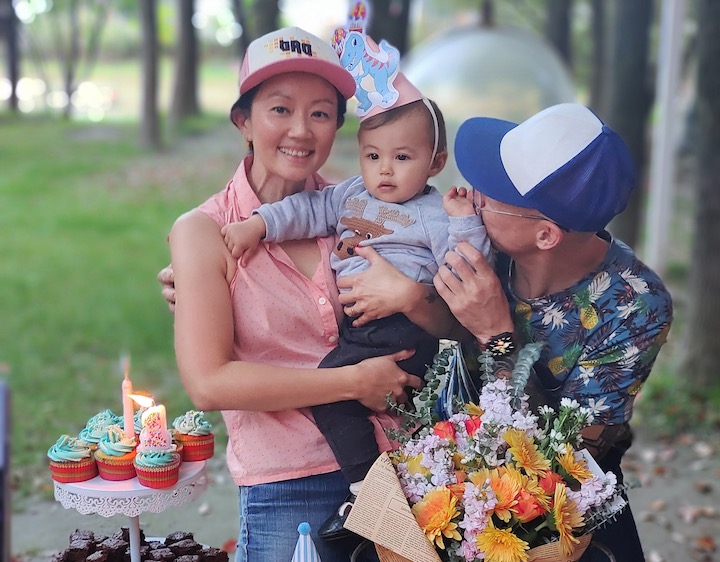
Can you talk us through your career pre- and post-baby?
I was working in an events agency in Shanghai before moving to Dali and having Luka. I was a project manager so there were lots of client servicing, site checks, concept creation, production supervision, food tastings, model castings, budgets… long days and even later nights. I enjoyed the process of seeing an event come to life from a concept on paper. I loved the creative process working with 3D and graphic designers. It was so tiring but I was young then. I thrived on the craziness of it all! I loved it. Until I didn’t. Or maybe I just got old—haha—and tired. All I started to notice were the horrible clients, impossible budgets and deadlines, and so much production waste. Maybe I was getting burnt out but I started to be less enthusiastic about work. During this time, Arthur and I discussed moving to Dali. It was a no-brainer for me. I was ready to embrace something new.
Since having Luka, the only project management I am doing is managing this huge never-ending project called life! I run a weekly private kitchen at home serving Singapore classics. I co-run Hanky Buddies, an online hanky brand selling 100% cotton hankies and reusable masks, teach yoga and do a variety of creative work with Arthur at Indigo Art Studio such as event decorations, wedding planning, and customised handmade items like carpets, toys, and cushion covers.
On top of this, I run the household, making sure we don’t run out of milk formula, cat food or toilet paper. We have a helper to take care of Luka in the day so this helps a lot and allows me to do all these other things.
I try to maintain some sort of social life so every month, I organise a Dali Ladies’ Night to try new restaurants and bars. I also try to attend other events such as clothing swaps and outdoor markets to meet new people and get inspired in general. I meet regularly with ladies from a Dali mama’s group, it’s so therapeutic because we talk, laugh and, complain about our husbands lol. So I don’t have a standard post-baby job or career here in Dali but the hours are just as long, if not longer, although it is definitely much more enjoyable.
Favourite kid-friendly restaurant in Yinqiao Town?
There are not many restaurants where we live. The few around here are very local and more like your little hole-in-the-wall type places selling rice bowls (盖饭), dumplings (饺子) or rice noodles (米线).
There is one trout restaurant that we love to go to. The restaurant is not fancy and almost seems like it is housed in a container but it’s still very picturesque with large windows so you can see the trout ponds. The owners cook trout five ways. First, we eat the trout sashimi style, served with a dipping sauce, then the tail of the trout is steamed, the skin deep fried, parts of the fish made into fish congee and, lastly, there is a salt and pepper type fried trout dish. I love that we don’t waste any part of the fish and the price is so reasonable. The lady boss has a young son so she has toy cars and bikes there to keep kids happy. I don’t think they intended it to be but it has turned out to be a pretty kid-friendly place.

Top five places in or around Yinqiao Town you would recommend to parents travelling with kids and why.
1. The trout restaurant I mentioned above!
2. Cangshan Story (苍山故事) – A big piece of land divided into a few parts not too far from our home. One area has horses, ponies and a huge track. For a fee, the kids can ride them. Another section has a shallow lake with life-sized animal statues around it. There are also slides, a bouncy castle and trampolines, lots of things to keep kids entertained. There are also BBQ tables and spaces you can rent. Kids can play while parents chit chat and have BBQ. We had Luka’s first birthday party there, it was great!
3. Rainbow Farm (彩虹农场) – My friend Xiaoli runs a lovely little authentic farm just east of Dali Old Town. She makes really good pizzas in her wood-fired oven, using fresh herbs and ingredients from her farm. You can have coffee or wine and let the kids play in the open field. She has some animals such as chickens, goats, and rabbits. It’s also a lovely spot for a picnic.
4. Er Lake (洱海) – where there are beautiful parks and walkways. Even though it is all modern and built up, the authorities have done a good job in keeping the lake natural. There are many paths for cyclists and pedestrians, and endless spots for picnics and gatherings. Naturally, it is now a great spot for kids to play at too.
5. Veggie Ark (素方舟) – A large outdoor space which includes a vegetarian restaurant offering a daily buffet, lovely gardens, a playground area, and large open grassy areas where there are often weekend markets selling secondhand things and healthy foods. There are also some animals like ostriches, rabbits, ducks, geese, and swans. Perfect to bring kids to on a sunny day.
Is there something that you do to keep your child in touch with his Singaporean roots?
At the moment, the only thing I consciously do is have video calls with my family in Singapore as often as possible, even if it is just for five minutes. As he is still very young, I just want him to be familiar with the faces of my family members. I suppose I’m not so much focused on his Singaporean roots yet, more just his family for now. But I imagine in the future, I will start by making and introducing Singaporean food to him and also teaching him the difference between lah, lor and leh. Hopefully we will be able to travel home to Singapore by then so he can experience our multicultural city firsthand.

Best souvenir one could bring back from Yinqiao Town
– for a child:
A locally-woven basket which you carry like a backpack. We use this so much here to go marketing and also just to go out. You can dump so many things inside and carry bulky things easily. I’ve recently spotted kid-sized versions. They are the cutest!
– for a mama friend:
Really depends what your mama friend is into! We have very good tea in Yunnan. Also lots of caffeine-free tea like rose and buckwheat. Moreover, Dali is famous for natural dye products and there are many beautiful things to buy such as tablecloths, cushion covers, aprons, and bedsheets. If your mama friend is a handicraft fan, this would be perfect. Yunnan has lots of seasonal goodies such as mushrooms, including dried ones that travel well. There is also a local version of truffles, much lighter in flavour and fragrance compared to what we know, and much cheaper. Still good to cook with though. Fruits such as persimmons and figs are also seasonally available. There are dried versions which you can make sweet soups with or snack on.
What do you find is the hardest part of being a mother living in a foreign country?
I think for me the hardest part is trying to navigate my way through anything medical. Even though my conversational Mandarin is fine, it is a different story when it comes to medical terms. When your baby requires medical help, it’s already scary. Not fully understanding the situation and the solutions because they are conversing in another language makes it extra daunting.
On raising multilingual children …
I’ll tell you in a year! Luka is 15 months old so up to now, it is more about raising a child and keeping him alive and well! But these days, he’s starting to speak a couple of words and I believe he understands quite a lot of what we say to him. I mainly speak English to him, my husband, French and our nanny, Mandarin. They say babies in multilingual environments might start speaking later but they catch up eventually. I also speak Mandarin to our nanny, and my husband and I speak in English. There’s a lot of crossover, I don’t know if it’s going to confuse Luka further.
Luka has books in all three languages. Sometimes when I read a French book to him, I don’t know if I should be reading it in French or in English. My husband refers to me as ‘maman’ when he’s talking to Luka, but I refer to myself as ‘mama’. Of course the little guy is confused. I don’t worry about his Mandarin. I’m sure he’s going to be fluent because of his environment. I worry that he doesn’t want to speak English or French. Many of my friends have bilingual children here. I see when the dad, for example, speaks French to them, they would reply in Mandarin.
I guess the hardest part for me, I would imagine, is to be fair and give enough airtime to all three languages to ensure that he likes them all… and then to slowly have him grasp the concept of language and its connection to culture so that he would eventually enjoy all three cultures! Haha I think I’m getting ahead of myself since Luka is still mixing up ‘mama’ and ‘papa’.
What do you always bring back from Singapore?
I always bring back foodstuff like sambals, bak kut teh spice packs, tamarind pulp, pineapple tarts, love letters and bak kwa. It really depends how much space I have in my luggage. I imagine in the future, I would probably bring back medicines and medicinal products from Guardian like Panadol Baby, baby antiseptic creams for bites and stings for Luka.
Tell us about your go-to recipe for your family.
I don’t really have one to be honest. I tried baby-led weaning when Luka was just starting to eat solids because it sounded so ideal to be able to cook one meal and the baby eats whatever you eat. But I found that to be untrue if you cook Asian. I can’t cook Asian dishes without adding salt, pepper, and other spices, and we don’t give Luka any salt, sugar or spices if we can help it. Since the nanny arrived, she cooks nutritious meals with bone broth. My husband has a lot of allergies and has found that the Keto diet, which limits carbohydrates, works well for him, while I am a lover of all things carbs! So all of us are eating different meals these days.
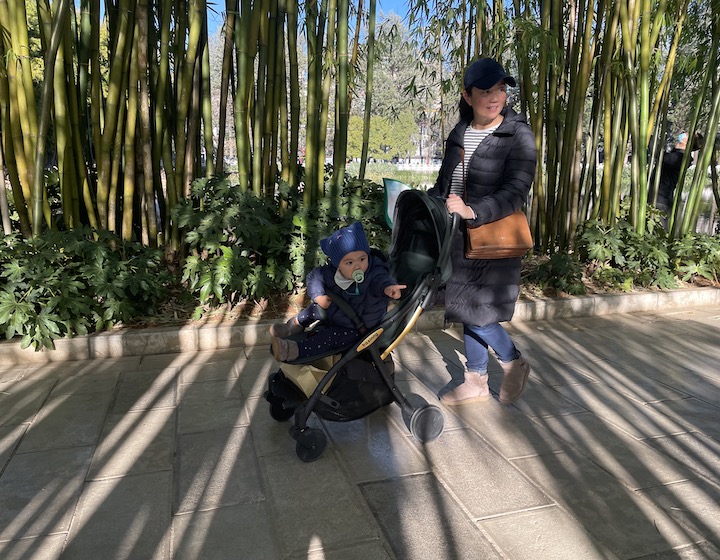
What’s the one thing you would miss about Dali if you moved away?
Taobao. Haha! You literally can get anything you need or want on Taobao! OK but that’s probably more relevant if I were to move out of China.
I would miss this house. We’ve put a lot of effort into the planning, building and design of the house and all its spaces inside. Over the years, we have constantly changed things around but every space is lived in and utilised, full of souvenirs we collected from our travels and memories we created during our time here. It’s the first home that Arthur and I created together and it’s also where we became a family of three. I can’t bear to think about the day when we will have to leave it.
What is the first thing you do each time you come back to Singapore?
Eat laksa.
What do you dread most if you are moving back to Singapore?
The high cost of living, downsizing of space at home as well as the competitiveness and peer pressure that kids face from a young age.
How do you think Singaporeans can benefit from living overseas?
I think living overseas just broadens your horizons and keeps you on your toes. You learn about a different culture, another way of getting things done, new celebrations, different foods, languages, and so much more. Things are never as easy as they are back home so life is challenging and makes you stronger.
This realisation comes only in hindsight of course. Many times when things don’t go smoothly in China, I would lose it and say things like “we need to leave this country!!” This definitely teaches me to accept things and go with the flow. We are foreigners in a foreign land after all so it’s only natural if things aren’t smooth-sailing sometimes. Also it makes you appreciate your own country, home and family more when you return!

More OVERSEAS MAMA stories for you

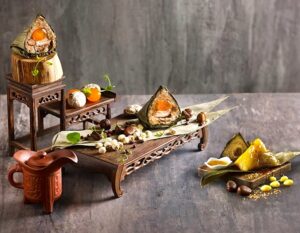

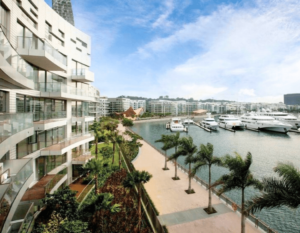
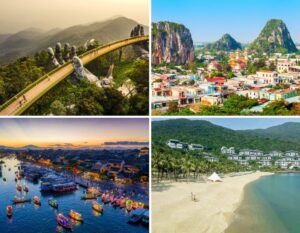

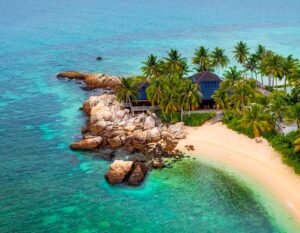
 View All
View All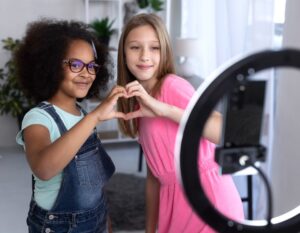

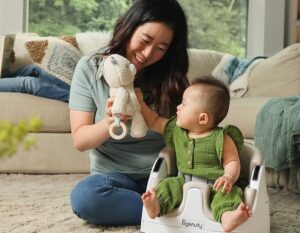
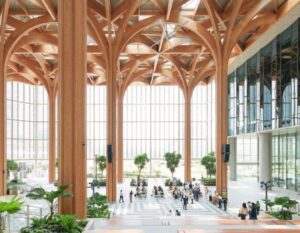
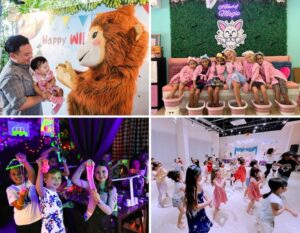

 View All
View All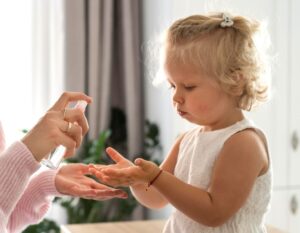
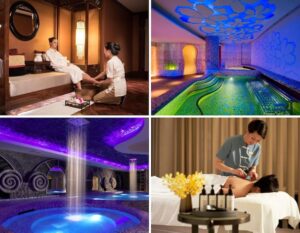
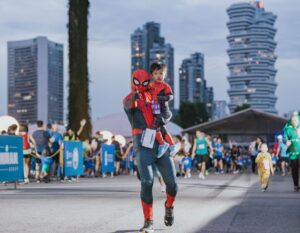



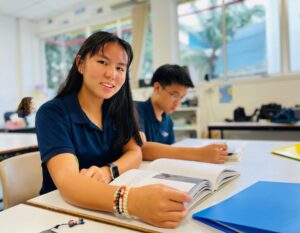
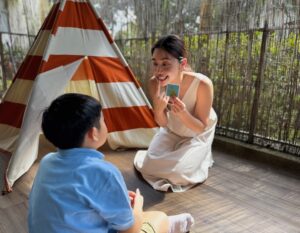
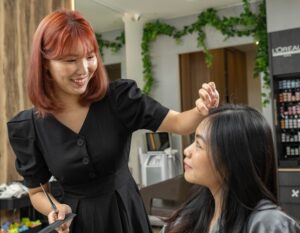
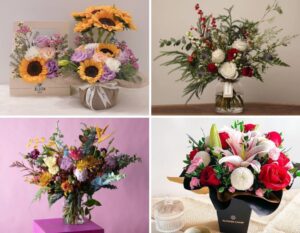
 View All
View All